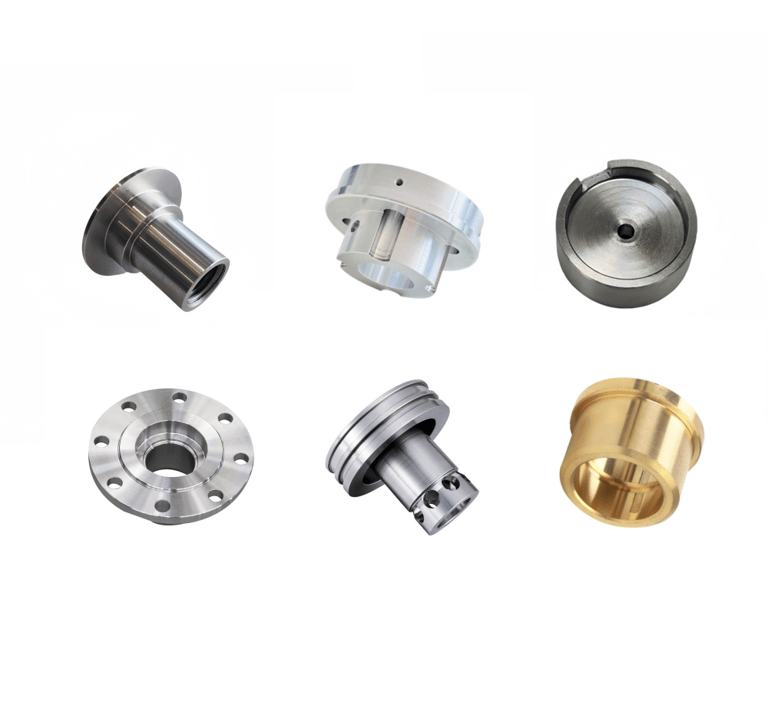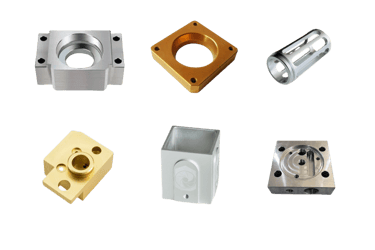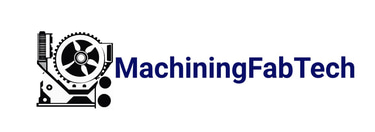cnc machining sensor components
Explore the role of the sensor and the importance of Mechanical Components in Their Functionality
CNC MACHINING SERVICE
2/20/20252 min read


The Role of Sensors and the Importance of Mechanical Parts in Their Functionality
Sensors are critical components in modern technology, enabling the detection, measurement, and analysis of environmental changes. They play a vital role in industries such as automotive, aerospace, healthcare, and manufacturing. This article explores the roles of sensors, the importance of mechanical parts in their functionality, and how precision manufacturing processes, like those used at MachiningFabTech, ensure high-quality sensor components.
Roles of Sensors
Sensors are designed to perform several key functions:
Detection: Sensors detect physical, chemical, or biological changes in their environment, such as temperature, pressure, light, motion, or chemical composition.
Conversion: They convert these changes into electrical signals or other forms of data that can be processed.
Transmission: The data is transmitted to a control system, display, or storage device for further action or analysis.
Feedback: Sensors provide feedback to control systems, enabling automation and real-time adjustments.
Importance of Mechanical Parts in Sensors
The mechanical components of a sensor are critical to its functionality, especially in sensors that rely on physical movement or deformation to detect changes. Here's how mechanical parts contribute:
1. Sensing Element
In many sensors, the sensing element is a mechanical component that responds to physical changes. For example:
Strain gauges: Measure deformation in materials.
Pressure sensors: Use diaphragms or Bourdon tubes that deform under pressure.
Accelerometers: Use tiny mechanical structures (like cantilevers) that move in response to acceleration.
The accuracy and sensitivity of the sensor depend on the design and material of these mechanical parts.
2. Structural Integrity
Mechanical parts provide the necessary structure and stability for the sensor to function reliably under various conditions (e.g., vibration, shock, or temperature changes).
3. Transduction Mechanism
Mechanical parts often play a role in converting physical changes into measurable signals. For example:
In a piezoelectric sensor, mechanical stress generates an electrical charge.
In a capacitive sensor, the movement of a diaphragm changes the capacitance.
4. Durability and Reliability
The mechanical components must be designed to withstand the operating environment (e.g., high pressure, corrosive substances, or extreme temperatures) without degrading.
5. Precision and Calibration
Mechanical parts must be manufactured with high precision to ensure accurate and repeatable measurements. Any wear or deformation can affect the sensor's performance.
Examples of Sensors with Critical Mechanical Parts
Pressure Sensors: Rely on diaphragms or Bourdon tubes to detect pressure changes.
Accelerometers: Use tiny mechanical structures (like springs or masses) to measure acceleration.
Flow Sensors: Use mechanical components like turbines or paddles to measure fluid flow.
Force Sensors: Use load cells or strain gauges that deform under force.
Precision Manufacturing of Sensor Parts
At MachiningFabTech, we specialize in producing high-quality sensor components, such as sensor caps, using advanced manufacturing techniques. Our process includes:
Material Selection: We use materials like aluminum, stainless steel, and brass to ensure durability and performance.
Cutting: Raw materials are cut to the required size.
CNC Machining: Precision turning and milling are used to achieve accurate dimensions and complex geometries.
Polishing: The final step ensures a perfect outer surface finish, enhancing both functionality and aesthetics.
This process ensures that the sensor caps meet stringent quality standards, providing accurate dimensions and a flawless surface finish.
At MachiningFabTech, our expertise in manufacturing sensor components ensures that every part meets the highest standards of precision and quality, supporting the reliable performance of sensors across industries, contact our engineering team for more information !



Follow Us
Contact
© 2024. All rights reserved.
Privary Policy
Refund Policy
